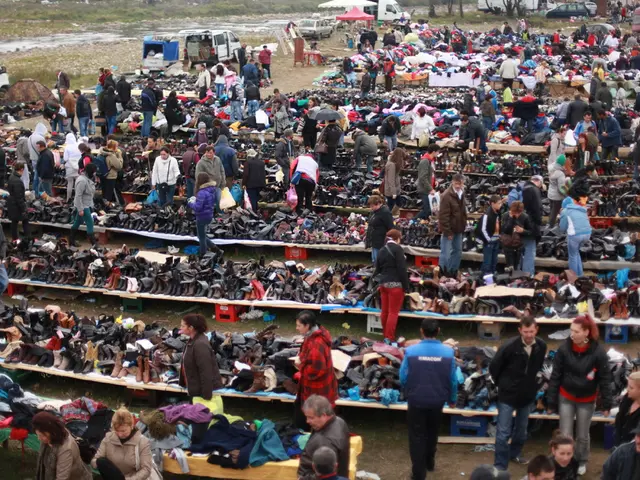Essential Items to Pack for Thrilling Adventures: A Comprehensive Guide
Getting Ready for Your Next Adrenaline-Fueled Vacation
With the global adventure tourism market anticipated to reach an astounding $1.6 trillion by 2028, thrill-seekers are stepping up their travel game, literally, scale the greatest peaks and jump into unknown territories. From skydiving in the Swiss Alps to rock climbing Greece's coastal cliffs, today's travelers are all about experiences that push the envelope. But let's face it: conquering the unknown requires more than just guts—it calls for preparation.
So, if you're ready to channel your inner daredevil, here's your ultimate preparation checklist to ensure you're well-equipped for whatever adventure comes your way.
Mastering the Art of Preparation
In extreme sports, every detail matters. Here's how to make sure you're fully prepped:
1. Seek out the knowledgeKnowledge is power, and in the realm of extreme sports, safety is everything. Before you dive headfirst:
- Scout the terrain: Weather, terrain, and local risks can all impact your prep. Alpine skydiving might require different equipment depending on the season.
- Know the rules: Some activities require certifications or permits, so double-check that you're good to go.
2. Select the right guidesYour experience hinges on going with veterans who know the ropes. Pick reputable operators with sterling track records.
- Check credentials: Look for operators affiliated with recognized safety organizations, such as the United States Parachute Association.
- Read reviews: Recent feedback reveals how others rated their safety, equipment, and service. Don't dismiss this crucial information!
3. Work on your fitnessExtreme sports demand serious physical and mental conditioning:
- Train smart: Tailor your workout routine to your specific sport. Climbers, for instance, need grip strength and core endurance, while divers benefit from breath control exercises and endurance training.
- Stay focused: Visualization and controlled breathing techniques can make all the difference when the pressure’s on. Stay calm, and you'll stay safe.
4. Dress for the occasionEvery extreme sport requires its must-haves. Glance through this list to ensure you're well-stocked:
- Carry essential gear: Different sports call for different essentials. Scuba diving necessitates a dive computer, fins, and mask; rock climbing requires a harness, belay device, and chalk.
- Test your kit: Don't hesitate to test, break in, and double-check everything from your climbing harness to your parachute. Some providers offer rentals, but bringing your own equipment sets your mind at ease.
5. Secure extensive travel protectionNot all insurance covers extreme sports, and our website is here to help with its ‘Adventure & Extreme Sports add-on.’ Whether you're base jumping, heli-skiing, or scuba diving, our website can cover you up to $250K for international trips or $50K for domestic trips in accident and sickness expenses. As you push your limits, let your coverage push right alongside you.
The Essential Travel Packing List for Adventure Junkies
Pro tip: Don't blanket yourself with unnecessary insurance. Some sports, like standard skiing and snowboarding, might already be covered by our base plan.
Remember to secure the 'Adventure & Extreme Sports add-on' from our website for complete peace of mind as you embark on the adventure of a lifetime.
Ready to take the plunge? We're here for you every step of the way, protecting you—from base jump to heli-ski, and beyond.
Protect my trip
- Prior to embarking on an adrenaline-fueled vacation, it's crucial to research the location's weather, terrain, and local risks to ensure you have the appropriate equipment.
- When selecting a guide for an extreme sport, opt for reputable operators with credentials from recognized safety organizations like the United States Parachute Association.
- To ensure safety during extreme sports, it's essential to train smart and focus on controlled breathing techniques.
- To be fully equipped for adventure travel, pack essential gear such as scuba diving equipment, climbing harness, or a parachute, as different sports require specific equipment.








